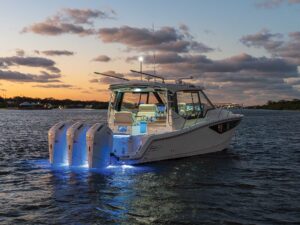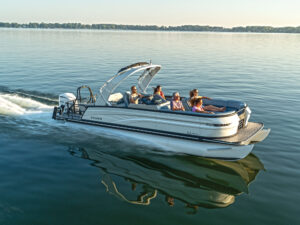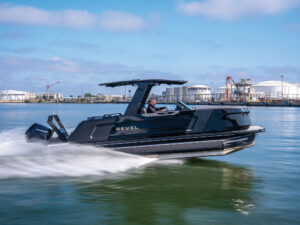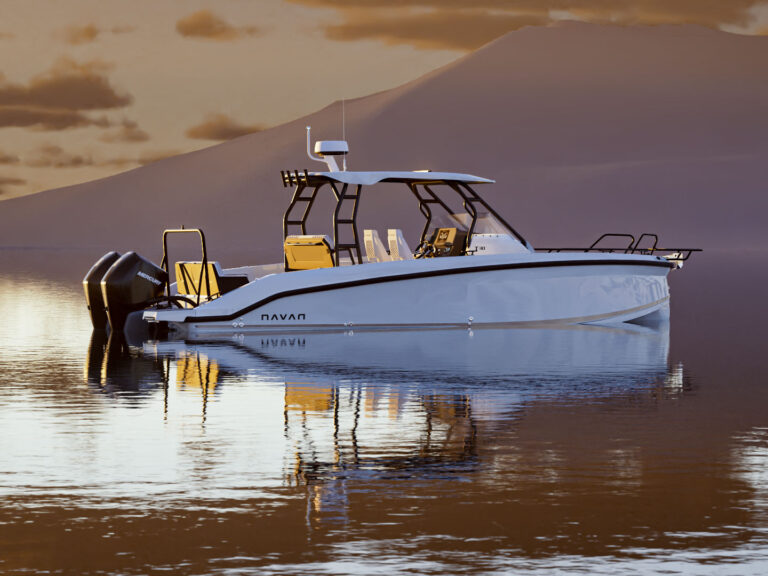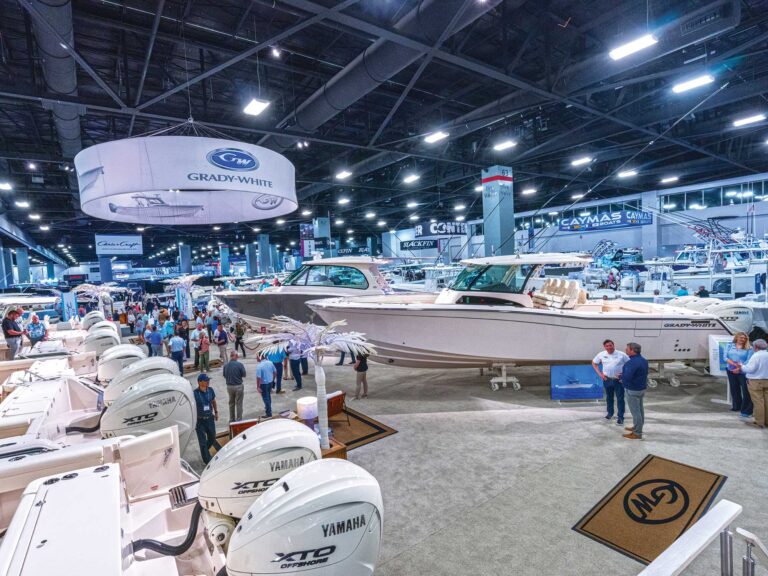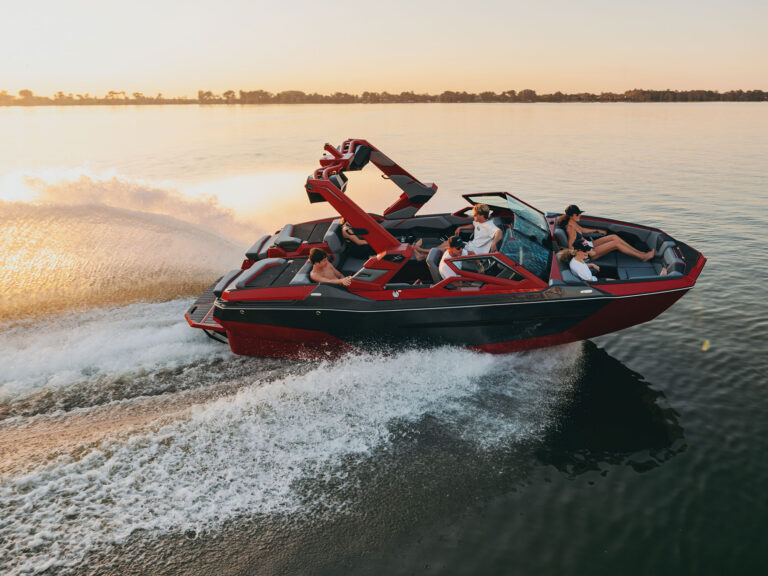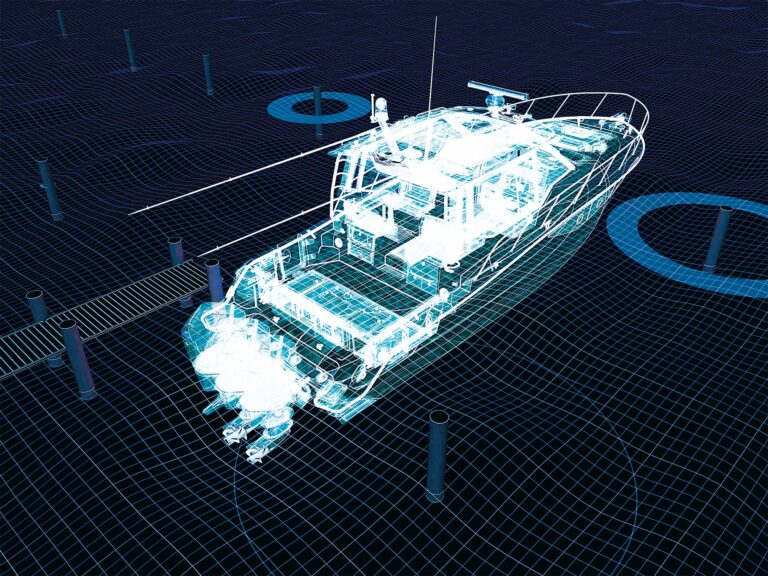
While I have logged thousands of hours in inboard towboats, I recently experienced a boat powered by Mercury’s Bravo Four S. This sterndrive features the propeller on the front side of the lower unit, like the Volvo Penta Forward Drive.
This forward-facing drive provides builders of family boats with the capability to design models tailored for wakesurfing. As a lifelong tow-sports enthusiast and competitive athlete, I’m excited to see advancements like the Bravo Four S and Forward Drive. Such innovation benefits the person behind the boat and improves the driver’s experience, bringing the enjoyment of wakesurfing and other tow sports to a broader audience.
By positioning the propeller under the hull, facing away from the rider, the Bravo Four S and Forward Drive ensure a safer wakesurfing experience. My experience testing the Bravo Four S sterndrive on a Sea Ray demonstrated that this innovation goes beyond forward-facing propellers to accommodate wakesurfing.
For tow-sports enthusiasts, the size and shape of the wake play a pivotal role in maximizing the enjoyment of each specific tow sport. Each sport has its optimal wake characteristics. The hull design, the amount of transom deadrise, and the weight of the boat all impact a wake’s size and shape. Features such as surf tabs, located at the transom, further refine the size and shape of the wake for wakesurfing. While the Bravo Four S created a very nice wave, it does not rank with the tournament-level waves that can be created with a V-drive-powered towboat featuring a hull design optimized for wake creation. That said, a boat powered by a forward-facing sterndrive will be faster for the same power, perhaps more efficient, and easier to maneuver at the dock or ramp.
Utilizing the sterndrive for tow sports offers an additional advantage: The driver can further adjust the wake’s shape and size by trimming the outdrive. For instance, trimming out (aka up) the drive places the hull’s stern deeper into the water, creating a larger wake suitable for wakesurfing and wakeboarding. Conversely, trimming in (aka down) the outdrive levels the hull to produce a smaller wake, better for water skiing, slalom skiing and barefooting.
Additionally, trimming down helps get the boat on plane quicker, especially for a boat that’s ballasted or is pulling up a heavier adult on a slalom ski or wakeboard. The trimming feature of the sterndrive provides another tool to give the tow-sports enthusiast an optimal wake and tow experience.
The contra-rotating propeller design also helps for better control at idle speeds, which makes returning to someone in the water at idle more precise. In addition, I observed that the contra-rotating propellers allowed for tighter turns at speed, which allows the driver to return to a fallen surfer, rider or skier quickly.
Read Next: MerCruiser Bravo Four S Forward-Facing Drive
Combining the contra-rotating propellers with Digital Throttle and Shift—standard in the Bravo Four S drive—and power-assisted hydraulic steering elevates the tow-sports driving experience, enhancing driver pleasure and enabling more-precise throttle and steering control.
The helm of the Sea Ray has an array of electronic features familiar to wakesports enthusiasts, including a Simrad touchscreen display and Mercury Smart Tow, enabling the driver to set rider profiles from the dash. A computer then manages speed and wake shaping for each tow sport. The driver can fine-tune these settings manually while underway, tailoring the speed and wake to each individual’s preference. These features elevate the family boat’s tow-sports experience and actively engage the driver.

